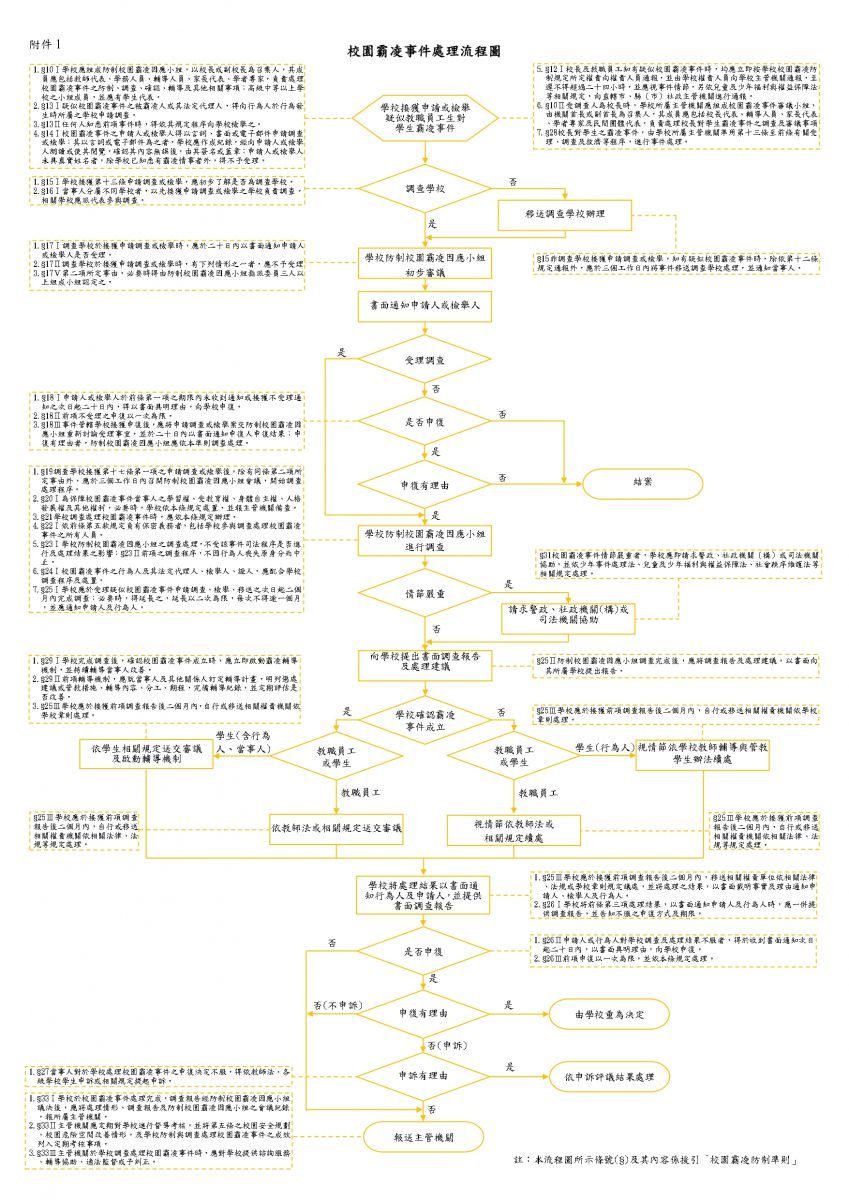文章分類Article
School Bullying | When a Child is Bullied and the School Does Nothing!
.png)
School bullying is a form of violence and harassment that frequently occurs on school campuses, having profound effects on the psychological and physical health of the victimized students. According to multiple studies, school bullying is not just a matter of students fighting or having conflicts; it often involves long-term, intentional, and repetitive attacks. These bullying behaviors can manifest as physical attacks, verbal abuse, social exclusion, and even cyberbullying through the internet.
The severity of school bullying cannot be ignored. Victimized students often experience a range of mental health issues, such as anxiety, depression, low self-esteem, and even suicidal tendencies. These psychological problems not only affect students' academic performance but can also have long-term negative impacts on their psychological development. Additionally, school bullying may lead to students avoiding school, thereby affecting their right to education and future career development.
For parents and educators, understanding the process of handling school bullying is very important. When a child is bullied, parents and teachers should intervene promptly, providing emotional support and effective solutions. Parents should establish good communication with their children, understand their daily lives and emotional states, and encourage them to express their feelings bravely. Meanwhile, schools should formulate clear anti-bullying policies and handling guidelines to ensure every student can learn and grow in a safe and respectful environment. However, when a child encounters bullying and the school chooses to ignore it for the sake of maintaining peace, how can we protect the child? What obligations does the school have to comply with after receiving a bullying report?
Common Forms of Bullying
Bullying behavior can range from direct verbal or physical attacks to more covert psychological or cyberbullying. Here's an overview of common forms of school bullying, detailing their characteristics and impact:
| Forms of Bullying | Description | Scope of Impact |
| Verbal Bullying | Includes behaviors like insults, taunting, and malicious mockery. | Typically occurs in face-to-face interactions, potentially causing psychological trauma to the victim. |
| Physical Bullying | Involves physical contact such as fighting, shoving, and attacking. | Causes physical harm to the victim and may bring about psychological fear. |
| Social Bullying | Involves deliberately excluding someone, spreading rumors, and damaging someone's social relationships. | Often has a negative impact on the victim's social life. |
| Cyberbullying | Bullying conducted through the internet and social media. | Can lead to the victim suffering online harassment and humiliation. |
| Psychological Bullying | Includes intimidation, manipulation, and instilling fear. | Primarily affects the victim's mental health and emotional state. |
| Gender-Based Bullying | Bullying behavior targeting an individual's gender identity or sexual orientation. | Impacts the victim's self-identity and mental health. |
School Bullying Prevention: What Parents Must Know
School bullying is a serious problem in children's growth, affecting their mental health and potentially having far-reaching impacts on their future lives. As a parent, you need to understand the following points:
Psychological Shadows and Harm
- Self-Esteem Hit: Bullying makes children feel inferior and unaccepted.
- Anxiety and Stress: Children may develop a fear of going to school, remaining under long-term stress.
- Depression and Isolation: Continuous bullying may lead to depression and a rejection of social relationships.
- Impact on Studies and Life: Psychological distress can cause a decline in children's academic and life performance.
Coping Strategies within Schools
- Legal Discipline: Teachers and schools should follow laws and regulations, avoiding improper punishment.
- Immediate Reporting and Handling: Upon discovering bullying, schools should immediately initiate investigation and response mechanisms to protect the victim and educate the perpetrator.
- Establish Bullying Investigation Teams: Schools need to form professional teams to conduct in-depth investigations and take action based on the findings.
- Gender Equality Protection: Handle gender-related bullying behavior, ensuring fair treatment for all students.
Obligations and Procedures Schools Must Follow

(Source:教育部防制校園霸凌專區Ministry of Education's Anti-Bullying Section,Laws are subject to change, please verify regulations or consult a professional lawyer for confirmation.)
What to Do When a Child is Bullied and the School Does Nothing? Practical Experience Sharing
The WHP team has handled several school bullying cases, especially in situations the school's inaction often results in secondary harm to the child. In such cases, the responsibility lies with the school. There may be different remedies and methods due to the varying legal relationships between public and private schools and students' parents. However, the school's failure to fulfill its protective duties remains unchanged, along with the subsequent liability for damages.
For instance, in private high schools, the relationship between the student’s parents and the school is a contractual relationship under civil law. If a child is bullied in school and the school is indifferent and tries to downplay the situation, it constitutes a breach of the auxiliary obligation of the civil contract, resulting in liability for non-performance of the obligation. It is necessary to examine whether the school has reported to the competent authority in accordance with the "Campus Safety and Disaster Reporting Guidelines" upon receiving a bullying report and whether there has been a failure to fulfill protective duties for the victimized student, constituting incomplete performance. Furthermore, if school staff are aware of a child being bullied, such as long-term ostracism and verbal abuse by most classmates, and the school fails to initiate subsequent counseling procedures, it constitutes a failure to fulfill the protective obligation, and the school should be liable for damages.
>Consult Now